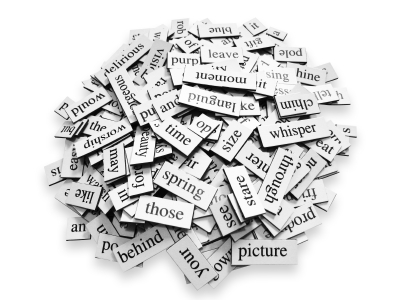 reading. Nathaniel Hawthorne and Thomas Hardy were old guys whose problems in no way jived with mine.
reading. Nathaniel Hawthorne and Thomas Hardy were old guys whose problems in no way jived with mine.But I got poetry.
When I wasn’t trying to write my own tortured lines, I was skipping ahead in the class reader, looking for the verses. The Brits had their Romantics; but for me, it was always the Americans: Robert Frost, Emily Dickinson, E.E. Cummings, Sylvia Plath, Walt Whitman, Gwendolyn Brooks. Lots of others too. Definitely John Lennon. (Technically British, and a Beatle. But I am going to go ahead and claim him.)
I mean, seriously, how can you ever get their images and tidbits of phrases out of your head?
Two roads diverged in that yellow wood . . . those old people eating beans . . . the exuberance of celebrating yourself so freaking loudly . . . the charge for the eyeing of the scars . . . the letter to the world that never writes back . . . that backwards melody of up so floating many bells down.
And the plea to imagine. Just imagine.
Poetry stuck on me as a teenager because it was an angst-filled time in my life when I just wanted permission to express emotion. And poetry was such a controlled and sophisticated way of doing it. It validated me (you are a freak, but that’s totally okay), and then it found a way to haunt me, in the best possible sense. It’s like every poet made this deal with me: hey, watch this little white space closely, because I am going sift together some words and phrases so carefully and beautifully that the rhythm will mold itself to your brain, and you will still hum it in your neurons when you are 38 years old.
With its over-emphasis on the line itself, there is this gut-grabbing immediacy to poetry that I’ve never been able to shake. Which is a good thing.
In fact, as I sat watching poet Richard Blanco recite the lovely, lovely poem, “One Today,” at the recent inauguration, it made me wonder: why we can’t live in poetry a little bit more? I don’t mean that as a trite rhetorical question, like, “Why can’t we all just get along!?
I mean it: why can’t we talk about our businesses more poetically?
In fact, why aren’t we using poetry to sell our talents and goods and services?
If a Word Looks Ugly and Sounds Ugly, it is Ugly
There is a reason I never took a business class and said right up until the time I finished graduate school that I had zero interest in business. It’s because the language seemed ugly.
Of course, I became a copywriter so that I could write prettier language. Problem solved!
Except not really. Because so much of business language is still so ugly.
Literally, the words are too long. They have too many consonants and no rhythm. There is no flow. No alliterative allure.
You won’t find yourself humming phrases like “ensuring key stakeholder buy-in,”“anticipating and proactively minimizing unique transition costs,” or “development and implementation of safeguards.”
But aside from the sound of it, much of business language is conceptually un-poetic too. Because it does a lousy job painting a picture. We operate in a multi-dimensional world. But ugly business language just stays locked into one dimension: straight across.
We’ve become so ingrained in this pattern of one-dimensional ugly language that we’ve started to believe that it just is that way. This is how business is, we say. It’s the real world. And poetry? That is for the poets and the students and the NEA and inauguration ceremonies.
But here’s what I think: I think poetry is actually an ideal form of modern communication. Mainly in its potential to say a lot quickly, and to cut to the quick gracefully. Two roads diverged in a wood, and I—I took the one less traveled by.
In fact, I feel like our minds are more like poems than A to B statements. Or maybe it’s just mine. (My husband claims that his brain is one giant map, everything being plotted somewhere.) Poetry is much closer to the way we think than jargon-filled nothingness.
So what do I mean when I say that we should use poetry to communicate about our businesses? Well, I’m not talking about sending out memos with Robert Frost poems (although that would be interesting).
I’m talking about adopting a more poetic mindset.
I’m talking about approaching individual words and the rhythm of them as if it really, really mattered. I’m talking about creating a space where ugly words that don’t actually mean anything are not allowed. I’m talking about saying more with less, but saying it really, really well. Neuron-humming well.
Totally doable, right?
Okay, so it requires a mindset shift. Some thought. And definitely some work.
I’ve always heard that football players take yoga and dance to increase their agility. Perhaps it’s time for business leaders to start taking poetry classes.
Or at least the road less traveled.
Comments
Posted by Polly Giblin on 02/27/13 8:02pm
Judi,
I LOVE today's post! I am not nearly the fan of poetry that you are but somehow what you were saying about business words being ugly and not meaning anything hit me at my core. Thanks for offering up an alternative perspective on how one can be in business without losing their soul
PollyPosted by Judi Ketteler on 02/27/13 8:15pm
Polly, thanks for the comment! I'm a little over the top with my love of poetry--I know! But I'm so glad that the message got through! A business with a soul is a beautiful thing: it should have only the most beautiful words around it.
-- Judi

